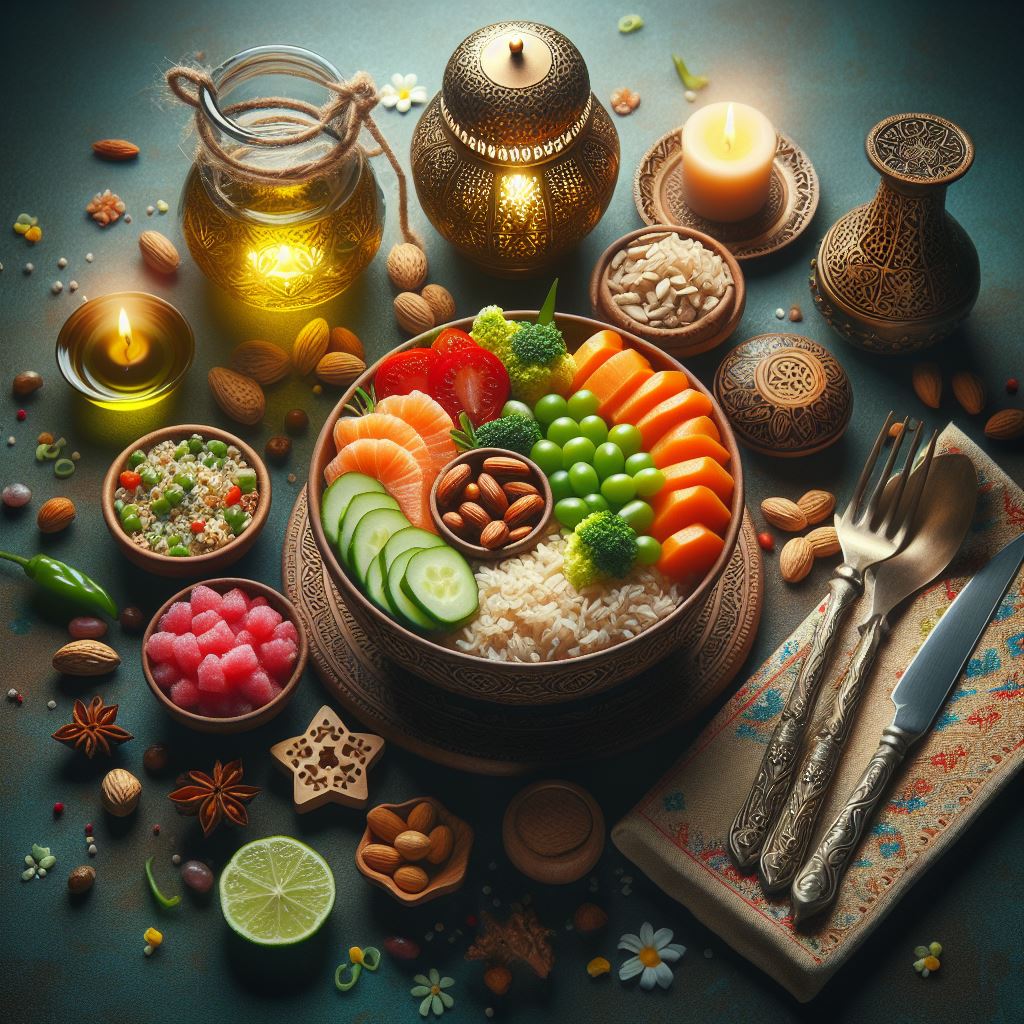
26
Mar
Nourishing the Soul: Healthy Eating Tips for Ramadan
Ramadan month includes collectively Muslim worship, through which spiritual contemplation, self-projection, and other forms of religious worship are being conducted majorly. The most important thing is that the fasting month starts everywhere from sunrise to sunset which helps the fasting soul to be strong on the hunger. Of course, this is both spiritual but also can be physical health benefiting. When the Ramadan period is reached, the instances of Muslim people’s spiritual journey will be increased. Also, the type of diet that you participate in should be able to boost your health and not put it in harm’s way at Suhoor (pre-dawn) and Iftar (breakfast). This, taking into account, compensates for the fact that they are normally properly nourished in the body and overall health.
Balanced Suhoor Meals
A Suhoor meal is crucial because it is full of a wide range of nutrients. So fasters are expected to remain fresh throughout their day of fasting, and that is only achievable if they eat breakfast. It is best to select Suhoor dishes that have complex carbs like whole grain stuff (rolled oats, whole wheat bread) which release energy at a slower rate; thus the body does not feel empty fast, but instead be full for a longer period. Frequent intake of egg bake, yoghurt, or lean meat which is consumed with baked eggs is the key to constant protein-synthesis and the process needs amino acids which are essential. In addition, fatty acids found in avocados, nuts, and seeds that are brain-directed ensure their protection well. Beyond the basics, research shows that’s mental health also influences his physical performance.
Hydration is Key
Enough hydration while you fast for prolonged hours is important, which is a significant practice in Ramadan. Not only are you required to hydrate yourself at Iftar and Suhoor adequately, but it is also important to consume a sufficient amount of water during the non-fasting hours to avoid dehydration. Another way of hydrating your body when you are on a keto diet could include such food options as hydrating fruits and green leafy vegetables.
Mindful Iftar Choices
Fasting is symbolic of self-purification and detachment from material temptations. While this is challenging, the reward of taking Iftar at the end of the day is one of celebration and gratitude. Nevertheless, this does not mean indulging in whatever food you fancy since the practice of consciously choosing what you eat to control your portion and, thus, promote digestion is of paramount importance. Start Iftar by eating natural dates and a few glasses of water. This is by the Sunnah of the Prophet Muhammad (pbuh) which is easy on the stomach and provides the required nutrients. Add nutrient-rich foods such as salads, vegetables, lean proteins, and whole grains to the meal to ensure the delivery of a balanced or wholesome diet. A diet high on fried items and sugar can dramatically affect your energy levels every day and also lead to other health complications.
Moderation and Portion Control
The fact that well-regulated and limited consumption of food with portion control is vital during Ramadan for a healthy diet is what can be indicated here. Restrain yourself from eating fizzy drinks, sweets, and fried meals as much as possible. Too much of these things causes you to gain weight and that’s never good for managing blood sugar. Eating slowly and enjoying every bite, noticing your fullness, and drinking more water between meals will help you to avoid excess amounts to eat and you will also absorb the food better.
Easy to Follow Nutritional Suhoor and Iftar Suoaches
Suhoor: Oatmeal with fruits and nuts, whole grain toast with avocado and eggs, Greek yogurt with berries and sweet honey.
Iftar: Grilled chicken or fish with quinoa and roasted vegetables, lentil soup with whole grain bread, mixed bean salad consumed under olive oil dressing.
In Conclusion
In other words, the process of adopting healthy eating habits during Ramadan creates health and then supports the spiritual feeling experienced when one is fasting. Selecting nutrient-rich foods, drinking enough water, trying a little bit of everything, and paying full attention to the spirituality of the spirit ensures that the body is in the best possible form, the health is supported and, proportionally, the Muslim people fully immerse in the spiritual essence of Ramadan.
